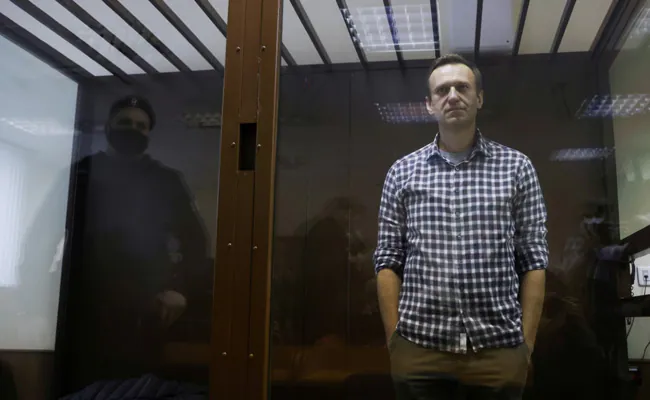A team of medics including ailing Kremlin critic Alexei Navalny's personal doctor were denied access Tuesday to a penal colony where he is being treated at a prison hospital.
Navalny, 44, launched a hunger strike on March 31 and his medical team over the weekend warned that his health was failing so rapidly he could die at "any minute".
Russia's prison service, which has repeatedly prevented Navalny's doctors from visiting him, on Monday moved him from his penal colony in the Vladimir region some 100 kilometres (60 miles) east of Moscow to a medical facility at another colony in the same region.
A team of physicians including his personal doctor Anastasia Vasilyeva has made multiple attempts to see him but been rejected each time.
On Tuesday morning the team was once again barred from seeing him, but was told to try again later in the day.
-This is super disrespectful to people who came to fulfil their human duty, a medical duty to help a patient- Vasilyeva told AFP outside the colony.
-We are talking now only about health and life.-
Navalny's lawyers also arrived at the penal colony on Tuesday and were allowed in, an AFP journalist at the scene reported.
Navalny is serving a two-and-a-half-year sentence for violating parole terms on old fraud charges he says are politically motivated.
The opposition politician was arrested on his return to Russia in January from Germany, where he had spent months recovering from a poisoning attack with the Novichok nerve agent.
Navalny blames the attack on President Vladimir Putin, a claim the Kremlin has repeatedly denied.
The European Union and the United States have imposed sanctions on Russia over the poisoning, and on Monday threatened Moscow with further penalties in the event of Navalny's death.
The opposition figure launched his hunger strike last month demanding proper medical treatment over severe back pain and numbness in his limbs.
His team over the weekend said a blood test had shown showed high potassium levels and elevated creatinine, indicating Navalny could be suffering from impaired kidney function and risked cardiac arrest.
Russia's prison service on Monday insisted his condition was "satisfactory", despite moving him to the medical facility, and said he was taking vitamin supplements as part of medical treatment.
Navalny's team has called on supporters to take to the streets on Wednesday -- when Putin is due to deliver his annual state of the nation address -- to protest how he is being treated.
